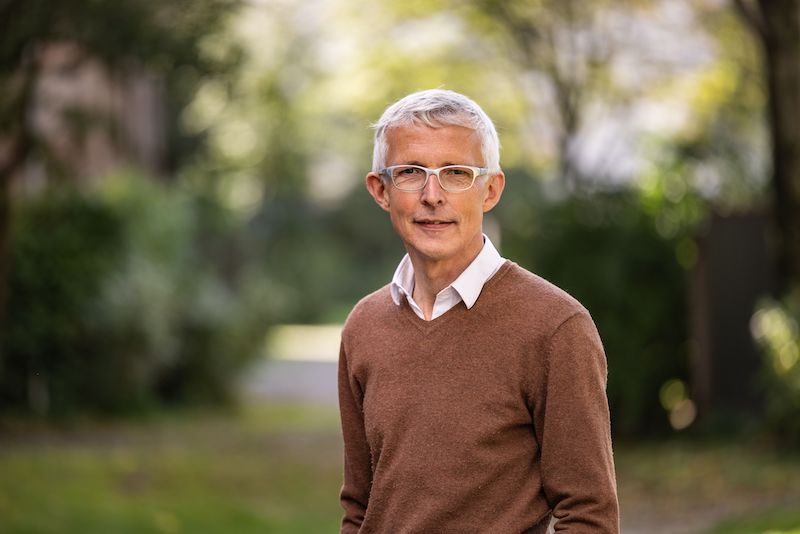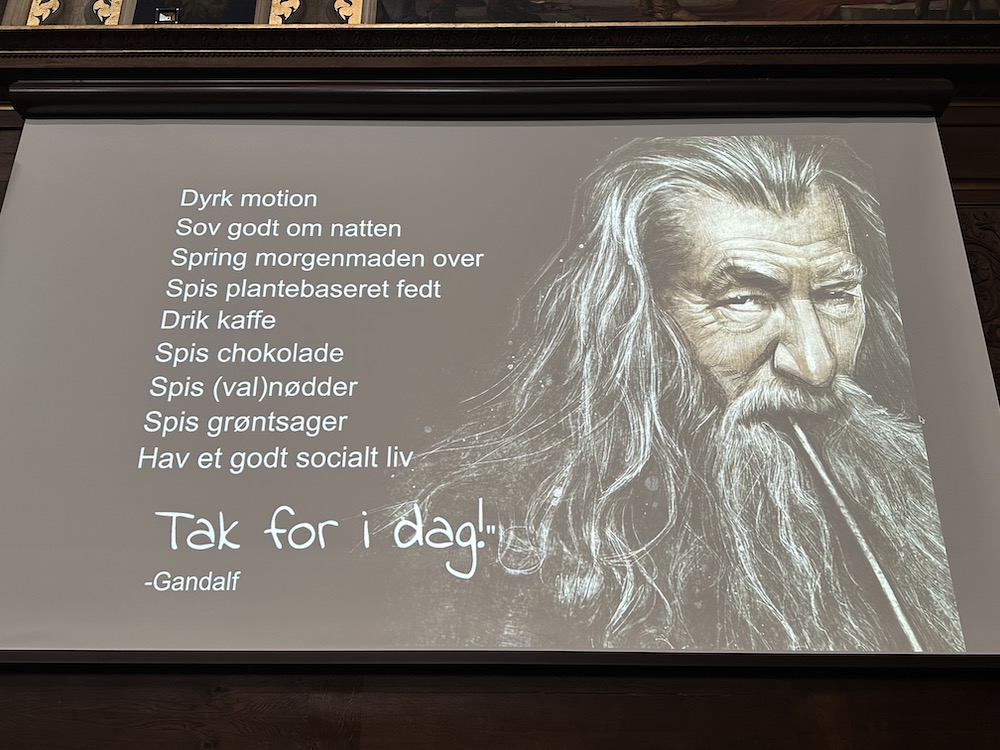
Ageism2: Being Both A Perpetrator and A Victim of Ageism
The Ageist Perpetrator: I ill-treated my old supervisor
Once during my residencies, we were awaiting the newly appointed chair of department. The days before, we had been gossiping about who would be our ultimate supervisor for the remainder of our training. One of my colleagues presented a woman with jaundice who was admitted to the hospital overnight. Straight from the beginning, I considered it a clear cut case of gallstone obstruction and had concluded that she needed an operation as soon as possible. The new chair opened a box of Pandora – at least that is how appreciated his intervention – by questioning the diagnosis and suggesting various alternative diagnoses that needed to be considered and excluded. I was worried that this would be the beginning of a tedious and time-consuming trajectory and would unnecessarily delay an operation with an adverse outcome as a result. After some time I could not bear it any longer and interrupted the conversation by saying that it should be clear that ‘this woman needed an operation without further diagnostic procedures’. My intervention left the attendees baffled and soon thereafter the morning session was closed. I remember to be surprised by the eruption myself; that I could not restrain myself. Walking through the hospital that day, I saw my colleagues whispering and it made me clear that my intervention was generally felt as inappropriate. All the chit-chat stopped after the patient had successfully been operated and nobody has referred to the incident thereafter. I carry the incident with me as one of the most person-sensitive professional encounters. For long, I’ve questioned myself whether it would have been better to remain silent but I felt the responsibility for (my) patients and it would trigger a similar response next time.
Ageism is the stereotyping and discrimination of individuals or groups solely on the basis of age. Ageism is different from other ‘isms’ as we are both perpetrators as well as victims of ageism during our life course. This is the second of three blog posts in a mini-series on ageism based on professor Rudi Westendorp’s thesis “Who Says I’m Old? A psychodynamic take on age discrimination” which completed his Executive Master in Change program at INSEAD in 2021. Get the full theses with references here
The Ageist Perpetrator: : I dismissed my old colleague
At age 40, I was appointed professor of medicine, and soon thereafter became head of the department of old age medicine. It was a remarkable transition as the professor in gerontology who only few years before had appointed me into his section, suddenly became my subordinate. We discussed openly about the new situation and agreed that we should consider it an opportunity of strengthening the field, which was our common passion, and moved forward. Gradually so, especially in his final years before retirement I did not take him seriously anymore, considered him not innovative. It was at a time that I felt the department was in need of change and should operate on a higher level in a highly competitive academic environment. Looking backwards, it is sobering that I did not put enough efforts in how to position my colleague better, to let him flourish to the benefit of himself and the department. Instead, he ended with a low, and his farewell party did not reflect the contributions that he had made earlier in his career.
The Ageist Perpetrator: I verbally abused my old mother
It must have been two years after my father died. It was festivities season and I had invited my old mother to spend some days with us. The atmosphere was good and all seemed to go very well. We were decorating the Christmas tree, went out for walks, enjoyed the family meals and had a nice time together. On the first day of Christmas, in the evening, I brought my mother home which is about one hour drive from where we lived. Upon arrival, when my mother opened the front door of the house, her tone seemed to change. Suddenly she started talking that life was difficult, she felt lonely and gave me the impression that we didn’t care enough, at least that is how I appreciated her complaints. I couldn’t understand which message she was conveying. Why this, why now, after having been in my family home for four days, all of us trying to comfort her? It felt so unfair, almost as an accusation that I was dumping her. I felt offended, became furious and started yelling at her. That she was just ungrateful, and I did not accept her behaviour. I must have used all the strong words that I have in me and felt my heart beating because of anger but increasingly felt ashamed about what was happening. After a minute I was myself again and all that remained was silence. I was the first one who started talking again and told my mother that I was leaving but would contact her after I had arrived home, which happened to be our normal routine. On the way back I remembered my colleague in anthropology who had learned me that complaining has a function in getting the attention of others, that it is a ‘normal’ way of communicating, but at the spot this insight failed to help me understanding what my mother signalled. When my mother picked up the phone when I had arrived home, she asked me whether it had been an easy drive and thanked me for the lovely days we had had together. I agreed and wished her good night. The incident has never been talked about again, neither has it affected our relation.
The three incidents show a gradual deterioration in my behaviour from pre-justice (supervisor), discrimination (colleague), to abuse (mother). Why did I let it happen? Upon reflection I think these significant persons showed behaviour that – at the time – I did not want to see as I considered it wrong, inferior or inappropriate. My supervisor showed that is good to be in doubt when I thought it was time for action. My colleague did not show the entrepreneurial mindset that I deemed to be necessary. My mother was mourning whereas I had expected a thank you.
Three times their behaviour was appropriate but I could not see. My considerations were egocentric, I thought I knew better, I disliked their action and instead felt superior and thought I could allow myself acting as I did. I thought that I could get away with it.
Rudi Westendorp
The Victim of Ageism: Frail, Costly and Risky
Not long ago, at age 62 years, I tripped in the bathroom and bruised my shoulder. The doctor in me whispered that I had to take painkillers regularly to prevent a frozen shoulder. I even increased the dose and kept to the scheme even more tightly when the pain didn’t subside. Four weeks after the incident I developed pain in my guts as a side effect of the drugs and another week later I suffered shingles that kept me awake for five weeks because of pain. I experienced myself what I know as a professional; i.e. that older people can suffer a waterfall of complications, completely by surprise, as an inherent feature of the aging process. I felt terrible, both physical and emotional and the only way to handle the situation was using irony, to make a laugh of myself. I presented myself as a ‘typical’ case of ageing when teaching on ‘frailty’ for the medical students, while hoping for their sympathy.
The fall in the bathroom was not thunder in a clear sky. We had sold and moved the family home from Copenhagen to our newly acquired medieval manor house in the Netherlands in just 6 months’ time. It had been a daunting and exhausting time with several unexpected challenges. We were confronted that we were unable to mingle with the Danes. We thought back to the year we lived in Manchester England, and rationalised that integration was so much more easier at young age, with the help of two joyful daughters that brought us in the homes of all the other families of the village. The banks were unwilling to help financing our move, as I was just ‘few years away from retirement’. Financial institutions have an evolutionary logic, they invest in the young who have prospect, not in the old who are considered costly and risky. Moving the household tired our muscles and brains much more than at an earlier age. We felt that our physical functions had gone down and the ageing process was getting us in its grip.
The Victim of Ageism: Wrong Age, Skin and Sex
During this transitional period, I explored the possibility to find a new position in the Netherlands. It would prevent me from travelling between Denmark and the lowlands. Within three quarters of a year, I’ve made four attempts, for two positions I was headhunted. None of them were successful. Above all, nobody was interested in, or thought it was appropriate to appoint a 62 year old white male. I was discriminated on my age, skin and sex. The sole fact that I was highly educated and outspoken made it only worse despite my notoriety and esteem. I was threatening them and the organisations they represented. I was appreciated the restless and reckless boy as in the past. Nothing had changed.
Six months have passed since we swapped countries and houses and a new equilibrium has evolved. On the short term it is a relief that I do not have to find another job, my crowd at University of Copenhagen breathe a sigh of relief. It feels as a support that apparently I’ve made the right decision, balancing the needs and desires of myself and the people I work with. On a deeper level I realise that I’m not yet in my third age. The Danish adventure does not represent my third age but was an ambitious extension of my professional life. Slowly and gradually, I accept that I’m in a transition of making an end to my academic career by tying the threads together and providing stewardship of the next generation. I can now see myself transitioning towards another destination, that of serving the local community and heritage preservation.

